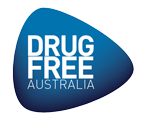https://bpspubs.onlinelibrary.wiley.com/doi/epdf/10.1111/j.1476-5381.2012.01941.x
“Alcohol is certainly a damaging drug, but to suggest that MDMA is less damaging than alcohol does not agree with the scientific evidence. Comparing these two drugs is like comparing an F1 sports car to a basic family saloon. MDMA is an extremely powerful drug, which heats up the brain, causing a massive increase in neurochemical activity, dramatic changes in mood state, and it takes the brain several days to recover. Regular MDMA usage impairs memory, reduces problem-solving ability, reduces white cell blood count, increases susceptibility to infections, causes sleep problems, and enduring depression. In pregnant women MDMA impairs foetal development. We and other research groups worldwide have compared the psychobiological functioning of recreational Ecstasy/MDMA users with alcohol drinkers, and in numerous studies it is always the Ecstasy/MDMA users who are comparatively worse. The ‘family car’ may kill more people each year than the F1 speed machine, but to suggest that the latter would be safer for everyday driving is completely erroneous. MDMA kills many young people each year, and the death toll is currently rising.” By Andy Parrott, Professor of Human Psychopharmacology, School of Health Sciences, Swansea University. (2018)



